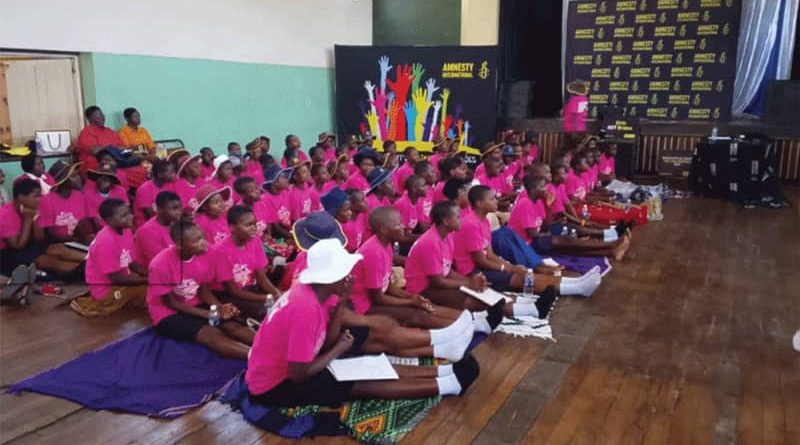“Protect Every Girl”: Calls Grow for Action on Child Protection Act
By Elizabeth Kucherera
The sound of laughter and song filled the air in Mutare as young girls gathered to mark the International Day of the Girl Child recently.But beneath the joy and dancing was a serious message — protecting girls from abuse and child marriage must not just be talked about, it must be done.
Among the crowd stood Rose Muzerengi, the Coordinator of Amnesty International Zimbabwe, her voice firm but hopeful.
> “We want to make sure that those who abuse or marry off young girls are held accountable,” she said. “Communities must see girls not as burdens, but as bright, capable individuals with dreams.”
Her words carried the weight of experience. In many parts of Zimbabwe, child marriage still traps girls in cycles of poverty, violence, and lost education — problems worsened by hardship and old traditions.
For Theresa Dube, a mother of three girls, the Child Protection Act signed by President Emmerson Mnangagwa last year is more than just a law — it’s a light of hope.
> “Thank you to the government and Amnesty International Zimbabwe for fighting for our daughters,” she said with a smile. “Now we know that girls have rights, and they can be protected.”
In the crowd was Lisa — not her real name — a quiet teenager from Marange. For her, the new law means safety and courage.
> “Before, we didn’t know who to tell or what to do when bad things happened,” she said softly. “Now I hope those who hurt girls in my village will face justice.”
Her words echoed the fears of many girls growing up in rural areas, where silence often protects abusers more than victims.
One mother, who preferred not to be named, shared a painful but powerful story.
> “My 14-year-old daughter was being abused by a 33-year-old man,” she said, her voice trembling. “Someone told me about the new law, so I reported him. He was arrested and sentenced to nine years in prison. Now my daughter is safe and back in school.”
Tears of relief rolled down her face as she spoke — a reminder that behind every law, there are real lives saved.
While many celebrated the progress, others warned that much work remains. Betha Tsunga, Director of IThemba for Girls Trust, said girls in rural districts still need more education about their rights.
> “In places like Mutasa, some communities don’t even know about this act,” she said. “The government must take this message to the villages — every girl, no matter where she lives, deserves protection.”
Thanks to the partnership between the government, schools, and organizations like Amnesty International Zimbabwe, girls in remote areas are now learning about their rights and how to speak up.
As the day’s celebrations ended, the message was clear — protecting the girl child is not just a duty, it’s a promise to the nation’s future.



